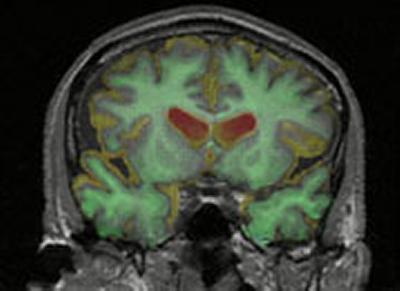Can infections make Alzheimer’s worse?

Dementia scientists at the University of Southampton are about to embark on an ambitious three-year project to investigate a possible link between infections and the progression of Alzheimer’s disease.
The research, funded by Alzheimer’s Research UK, the UK’s leading dementia research charity, aims to shed more light on whether inflammation caused by common infections, like urinary or chest infections, could make Alzheimer’s develop faster.
Just over £300,000 has been awarded for the study, part of Alzheimer’s Research UK’s £20m investment in pioneering dementia research across the UK. The research, starting this month, will build on growing evidence that the immune system becomes activated in the brain during Alzheimer’s. While the immune system normally has a vital role to play in protecting our bodies from damage, the Southampton team believes it may do more harm than good for people with Alzheimer’s.
Dr Delphine Boche, Lecturer in Clinical Neurosciences at the University of Southampton, is leading the study. She said: “Many of the known risk factors for Alzheimer’s, like age, obesity and diabetes, increase inflammation in the brain and we think that infections could be another risk factor. There is already evidence that the immune system is on high alert in people with Alzheimer’s and we think that an extra trigger, like an infection, could tip the balance and make immune cells switch from being protective to harmful.”
To investigate this link further, the research team will look at generously-donated brain tissue from people with Alzheimer’s. Using doctors’ notes, the researchers will look for changes in the brains of those who had infections when they died compared to those who did not.

The scientists will use fluorescent ‘tags’ to label immune cells in the brain, and study them under the microscope. They will look for signs that infection causes distinct changes in the immune cells of people with Alzheimer’s compared to those without, helping them learn more about the factors driving the disease.
Dr Boche, said: “We are particularly interested in immune cells called microglia, as we think they may start producing chemicals that could be harmful to cells and make Alzheimer’s worse. The findings could have important implications both for our understanding of the disease and for the management of healthcare in the elderly. We are incredibly grateful to Alzheimer’s Research UK and their supporters for providing us with the funds to make the research possible.”
Dr Eric Karran, Director of Research at Alzheimer’s Research UK, said: “The study has the potential to help us understand more about how to delay the progression of this devastating disease, which affects over half a million people in the UK. Slowing the progression of Alzheimer’s could have a huge impact on families and allow people more valuable time with their loved ones. Only by understanding the factors that drive the disease, can we develop new and innovative ways to slow it down. Last year, with our help, several high-profile studies implicated inflammation in Alzheimer’s and this new research will build on these findings. We are proud to be supporting this pioneering project, which we hope will drive forward our understanding in this new and exciting area of dementia research.”